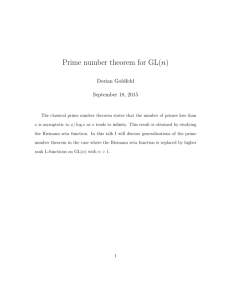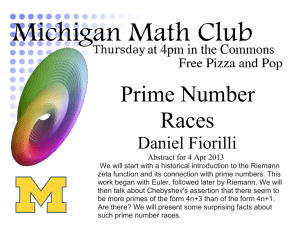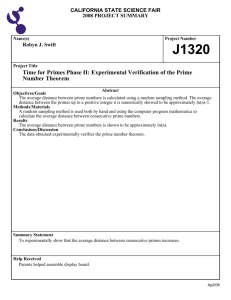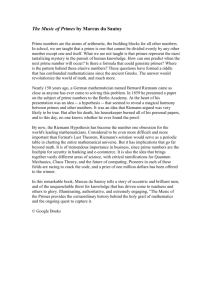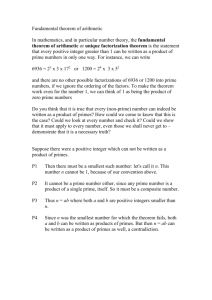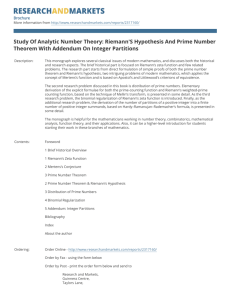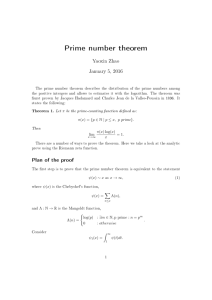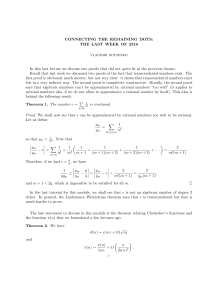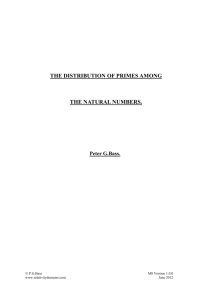The Prime Number Theorem - Jonathan Hanke`s Website
advertisement
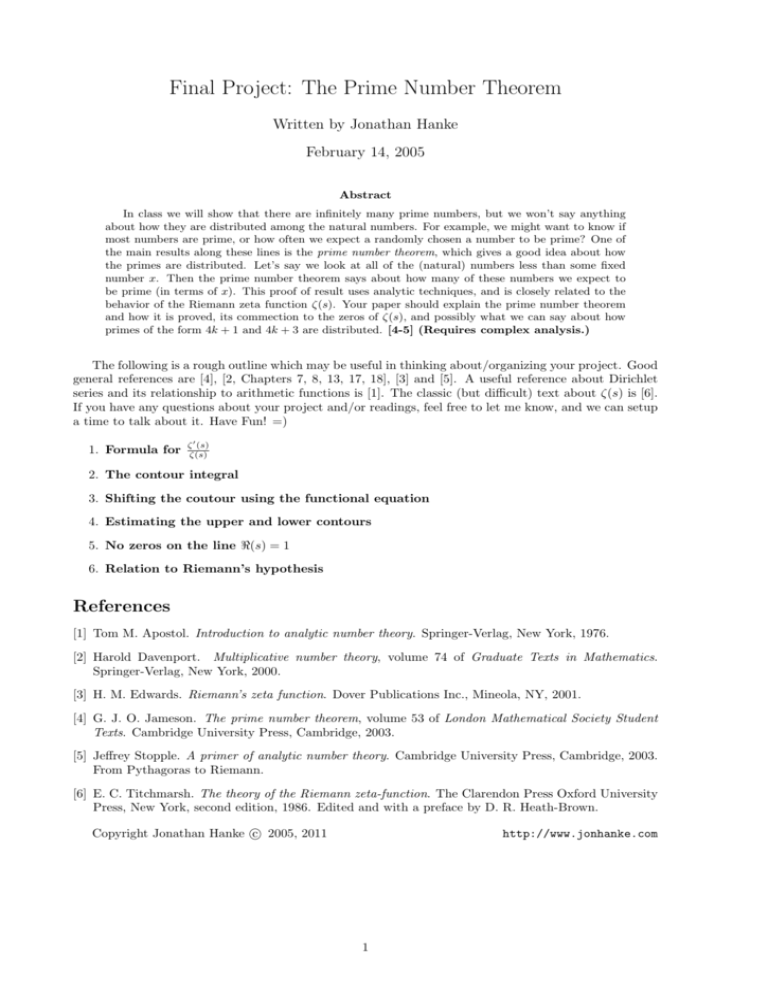
Final Project: The Prime Number Theorem Written by Jonathan Hanke February 14, 2005 Abstract In class we will show that there are infinitely many prime numbers, but we won’t say anything about how they are distributed among the natural numbers. For example, we might want to know if most numbers are prime, or how often we expect a randomly chosen a number to be prime? One of the main results along these lines is the prime number theorem, which gives a good idea about how the primes are distributed. Let’s say we look at all of the (natural) numbers less than some fixed number x. Then the prime number theorem says about how many of these numbers we expect to be prime (in terms of x). This proof of result uses analytic techniques, and is closely related to the behavior of the Riemann zeta function ζ(s). Your paper should explain the prime number theorem and how it is proved, its commection to the zeros of ζ(s), and possibly what we can say about how primes of the form 4k + 1 and 4k + 3 are distributed. [4-5] (Requires complex analysis.) The following is a rough outline which may be useful in thinking about/organizing your project. Good general references are [4], [2, Chapters 7, 8, 13, 17, 18], [3] and [5]. A useful reference about Dirichlet series and its relationship to arithmetic functions is [1]. The classic (but difficult) text about ζ(s) is [6]. If you have any questions about your project and/or readings, feel free to let me know, and we can setup a time to talk about it. Have Fun! =) 1. Formula for ζ 0 (s) ζ(s) 2. The contour integral 3. Shifting the coutour using the functional equation 4. Estimating the upper and lower contours 5. No zeros on the line <(s) = 1 6. Relation to Riemann’s hypothesis References [1] Tom M. Apostol. Introduction to analytic number theory. Springer-Verlag, New York, 1976. [2] Harold Davenport. Multiplicative number theory, volume 74 of Graduate Texts in Mathematics. Springer-Verlag, New York, 2000. [3] H. M. Edwards. Riemann’s zeta function. Dover Publications Inc., Mineola, NY, 2001. [4] G. J. O. Jameson. The prime number theorem, volume 53 of London Mathematical Society Student Texts. Cambridge University Press, Cambridge, 2003. [5] Jeffrey Stopple. A primer of analytic number theory. Cambridge University Press, Cambridge, 2003. From Pythagoras to Riemann. [6] E. C. Titchmarsh. The theory of the Riemann zeta-function. The Clarendon Press Oxford University Press, New York, second edition, 1986. Edited and with a preface by D. R. Heath-Brown. c 2005, 2011 Copyright Jonathan Hanke http://www.jonhanke.com 1
